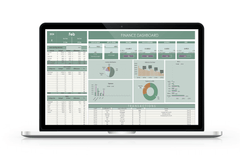) The simple mechanic: interest is charged on what’s left
- UK residential mortgages charge interest on your outstanding balance (usually calculated daily, collected monthly).
- When you make an overpayment, the balance drops now, so next month’s interest is lower, which means more of your regular payment kills debt, which lowers next month’s interest again.
- That “more to principal next month” compounding is where the big savings come from.
2) Two ways lenders apply overpayments (pick the right one)
When you overpay, lenders will do either (and you usually get to choose):
- Reduce the term (keep your normal monthly payment the same).
- Your payment doesn’t fall; you simply finish earlier and pay less total interest.
- This is what you want if your goal is to be mortgage-free sooner.
-
Reduce the monthly payment (keep the original term).
-
Your payment falls a bit, freeing cash flow, but you don’t save nearly as much interest.
-
What to say (verbatim):
“Please apply all overpayments to reduce the term, not reduce the monthly payment.”
3) Illustrative numbers (to make it concrete)
Assumptions (typical, rounded):
-
£200,000 mortgage, 25 years, 5.5% rate, repayment (capital + interest).
-
Regular monthly payment: ~£1,230 (illustrative).
-
Overpayment: +£100/month.
Scenario A — Overpay £100 from day 1 (reduce term)
-
Time saved: ≈ 4½–5½ years (finish around year 19–20 instead of 25).
-
Interest saved: ≈ £35k–£45k over the life of the loan.
Scenario B — Start overpaying £100 halfway (after ~£100k still owed)
-
Time saved: ≈ 2–3 years.
-
Interest saved: ≈ £12k–£18k.
These are ballpark figures. Exact savings depend on your lender’s calculation basis, overpayment start date, and rate changes. You can verify with any amortization calculator (see “Check it yourself” below).
4) Why “reduce term” crushes interest (visual logic)
-
Add £100 today → balance is lower tonight.
-
Tomorrow’s daily interest is calculated on that smaller balance.
-
Next month, more of your normal payment hits principal (because interest due is smaller).
-
Rinse and repeat: every month, the “principal-portion snowball” grows → you finish earlier.
If you chose “reduce monthly payment,” the opposite happens: your lender lowers your monthly bill, which gives back some of the compounding advantage you just created. Fine for cash-flow relief; not ideal for total-interest saved.
5) How to set it up (fast checklist)
-
Check overpayment rules
-
Many UK fixed-rate deals allow up to 10% of the outstanding balance per year without early-repayment charges (ERCs). Variable/trackers can be more flexible.
-
Look for: ERCs, minimum overpayment amounts, and how often you can do it (monthly is fine with most lenders).
-
-
Tell your lender your preference
-
Message/phone script: “Please apply my monthly overpayments to reduce the term (keep the scheduled payment unchanged).”
-
-
Automate the £100
-
Set a standing order to your mortgage account for the day after your normal payment goes out (avoids mishaps, preserves cash flow).
-
-
Track progress
-
Make a note of your original end date vs your new estimated end date.
-
Review annually (or at each rate change) and tweak the overpayment if you can.
-
6) “What if my rate changes?”
-
On a tracker/variable, your required payment will flex with rates; your extra £100 still lowers principal immediately and still reduces lifetime interest.
-
When you remortgage, re-confirm with the new lender that overpayments should continue to reduce the term.
7) Common questions
Q: Should I build an Emergency Fund first?
A: Usually yes. Aim for £500–£1,000 starter, then 3–6 months’ essentials. Overpaying feels great, but you don’t want to run short and put emergencies on a credit card.
Q: Overpay mortgage or invest?
A: Overpaying gives a risk-free return equal to your mortgage rate (after tax). Compare that to your realistic, after-tax, after-fees expected return from investing and your risk tolerance.
Q: Offset mortgages?
A: With an offset, piling cash into the offset account reduces the interest the same way—without making an irreversible overpayment. Great for flexibility.
Q: Early repayment charges (ERCs)?
A: Always check. If an ERC applies, you might cap your overpayment at the penalty-free allowance (often 10% of balance per year during the fix).
8) Check it yourself (and show your readers)
-
Use any amortization calculator (or your lender’s).
-
Inputs: loan amount, rate, term, monthly overpayment.
-
Compare (a) no overpayment vs (b) +£100 overpayment with term reduction.
-
You can also demonstrate with your Debt Snowball calculator—set the mortgage as a single “debt” and add an extra £100/month payment. The difference in end dates and total interest is your saving.
9) Copy-paste “info card” for your article (and Pinterest)
Add £100/mo → Finish Years Sooner
Interest is charged on your remaining balance.
-
Pay £100 extra today → balance drops now
-
Next month: less interest, more of your normal payment kills debt
-
Tell your lender: “Apply overpayments to reduce term (keep monthly payment).”
Illustrative example (5.5%, £200k, 25y): +£100/mo ≈ ~5 years sooner and ~£40k less interest. Figures vary—check with your lender/calculator.
10) A quick script you can add to your site/email
Subject: Overpayment Instruction – Reduce Term
Hi [Lender],
I’d like all current and future mortgage overpayments to be applied to reduce the remaining term, keeping my scheduled monthly payment unchanged.
Please confirm this setting is active on account [xxxx].
Thanks,
[Name]
11) Takeaways
-
Every £100 matters—because it cuts today’s balance, it cuts next month’s interest, which then accelerates every future month.
-
For maximum effect, reduce term, don’t reduce payment.
-
Start when you can (starting early saves most, starting halfway still saves years).
-
Check allowances and ERCs, build your buffer first, and automate.





